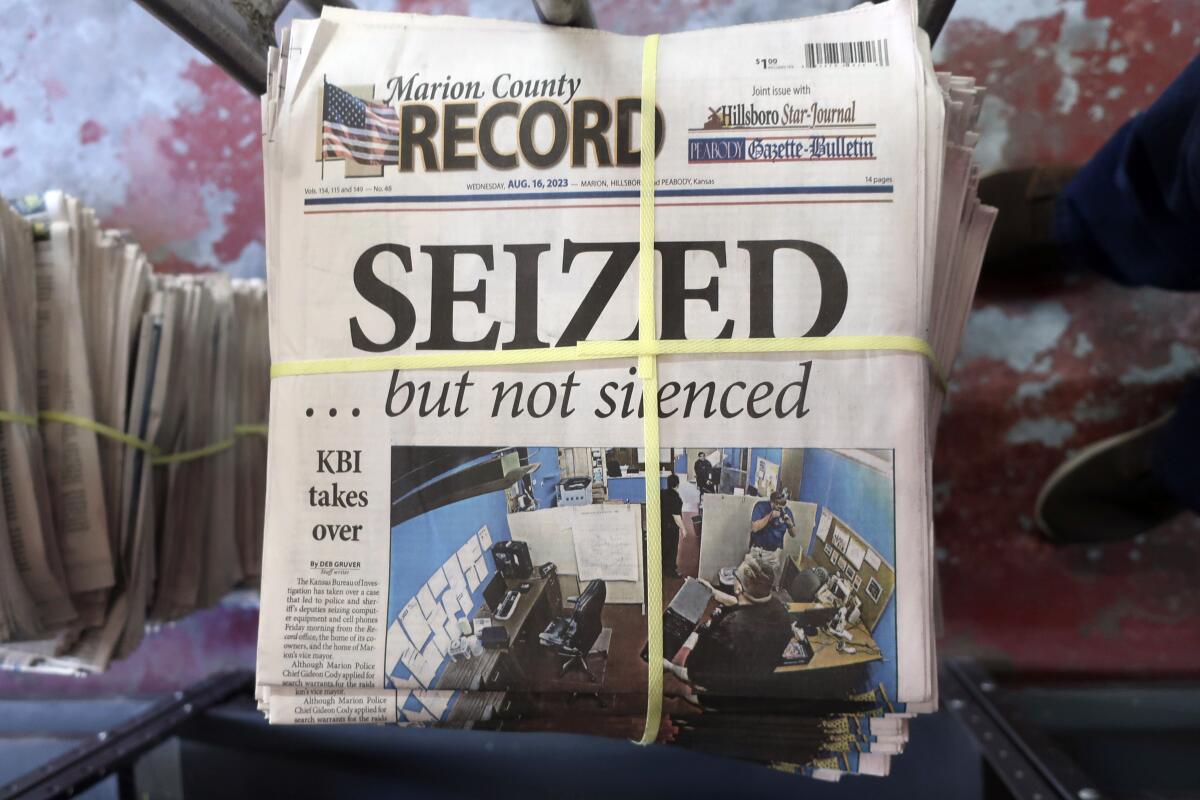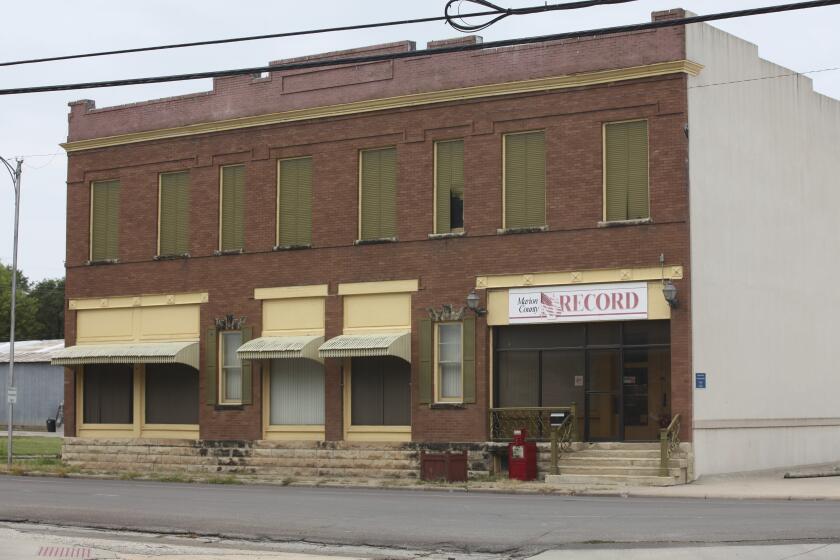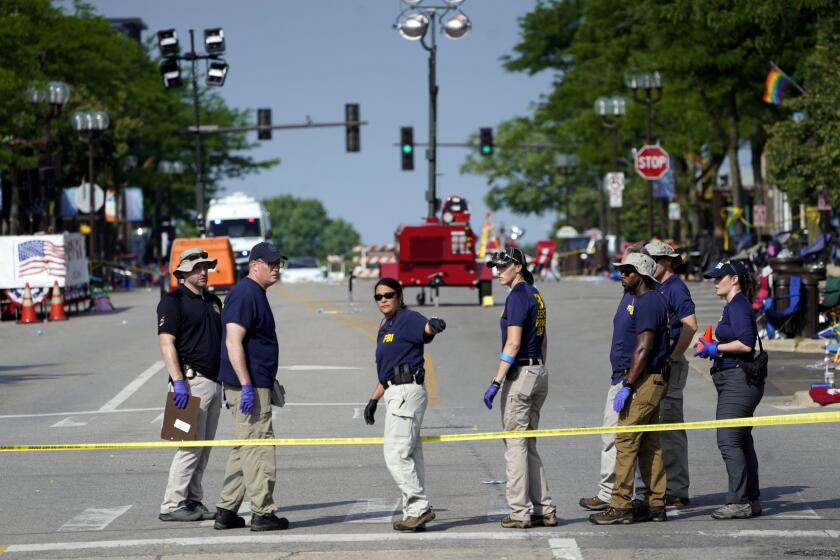Opinion: Claiming a ‘computer crime’ shouldn’t give police a free pass to raid newspapers

- Share via
This month, police officers in Marion, Kan., crashed into the newsroom of the Marion County Record, a weekly newspaper, and the home of its publisher to seize computers, cellphones and documents. After several days of public outcry, the county attorney ordered the material returned.
Newsroom searches are rare today because a 1980 federal law makes them almost always illegal. But the outcry goes back to colonial days, when British-loyalist redcoats raided revolutionary American pamphleteers. Such searches were seen as the ultimate attack on the free press. In the infamous 1971 search of the Stanford Daily, for example, Palo Alto police were seeking photographs to tie Vietnam War protesters to a violent clash on campus. After the Supreme Court refused to offer protection from such raids, Congress passed the 1980 statute, making newsroom searches far less of a threat.
These searches took place in a small town, but the temptation of law enforcement to overreach in dealing with journalists exists in communities of all sizes.
Instead, the Marion case highlights a separate, systemic threat to press freedom: vague and sweeping computer crime laws, which exist in all 50 states. These laws can be readily used to intimidate reporters and suppress reporting without raiding their offices.
The Marion raid appears to be the first time public officials have searched a newspaper under the claim of enforcing a computer crime law. The search warrant in that case listed violations of statutes covering identity theft and “unlawful acts concerning computers.”
Trump’s free speech rights don’t shield him from prosecution for allegedly trying to overturn the 2020 election results. The issue is his actions, not his words.
The state computer crime statute applies when someone breaks into a computer network with malware or uses another person’s information to steal money from their bank account. But these laws are so vague that they can be deployed to penalize reporters for using computers to find information online as part of routine journalism.
In Missouri, for instance, a reporter for the St. Louis Post-Dispatch discovered a serious flaw in a state website that put the security of thousands of Social Security numbers at risk. He alerted the state agency so it could fix the issue before he published the story.
In the case of an accused online stalker, the court adopted a compromise to both protect free speech and safeguard people from being threatened.
Instead of thanking him, the Missouri governor called for a criminal investigation of the reporter under state computer crime laws. That case ended with a thorough rebuke of the governor by the local prosecutor, who declined to press charges. An exhaustive state report found no evidence of any intentional criminal act. The prosecutor said the law was so vague that it criminalized using “a computer to look up someone’s information.”
Similarly, in 2019, the city of Fullerton sued a local blog and two contributors under federal and state computer crime laws for reviewing information stored on a city Dropbox page, which was available to anyone who knew where to look. Following extended litigation, the city agreed to drop the case and “retracted any and all assertions” that the bloggers had acted illegally.
Even an extreme reading of the 2nd Amendment doesn’t override the 1st Amendment.
The news media is not alone in raising an alarm about this trend. In the first U.S. Supreme Court case defining the scope of the federal Computer Fraud and Abuse Act, the court cited this risk in narrowing the law’s application. Criminalizing the use of a computer to access information online, when there is not some kind of “gate” restricting access (like a password), could hinder modern-day journalism, the court noted. (The Reporters Committee for Freedom of the Press filed a friend-of-the-court brief in that case.)
The notorious raid in Marion will remind magistrates and police that newsroom searches are almost never allowed, and the Marion County Record may have a legal path to sue city officials for damages from the raid.
With more newsgathering now taking place online, the endlessly elastic nature of computer fraud laws is a special problem for the press. The temptation for public officials to employ these laws against reporters — especially those uncovering news they would prefer hidden — will be difficult to resist.
But lawmakers can address that temptation in two ways. One, they should add explicit protections for newsgathering in computer crime laws. And two, they can enact protections from searches like the 1980 federal law into their state codes. California is one of the few that has such a provision, and others can and should follow suit.
Bruce D. Brown is the executive director of the Reporters Committee for Freedom of the Press. Gabe Rottman directs the Reporters Committee’s Technology and Press Freedom Project.
More to Read
A cure for the common opinion
Get thought-provoking perspectives with our weekly newsletter.
You may occasionally receive promotional content from the Los Angeles Times.














